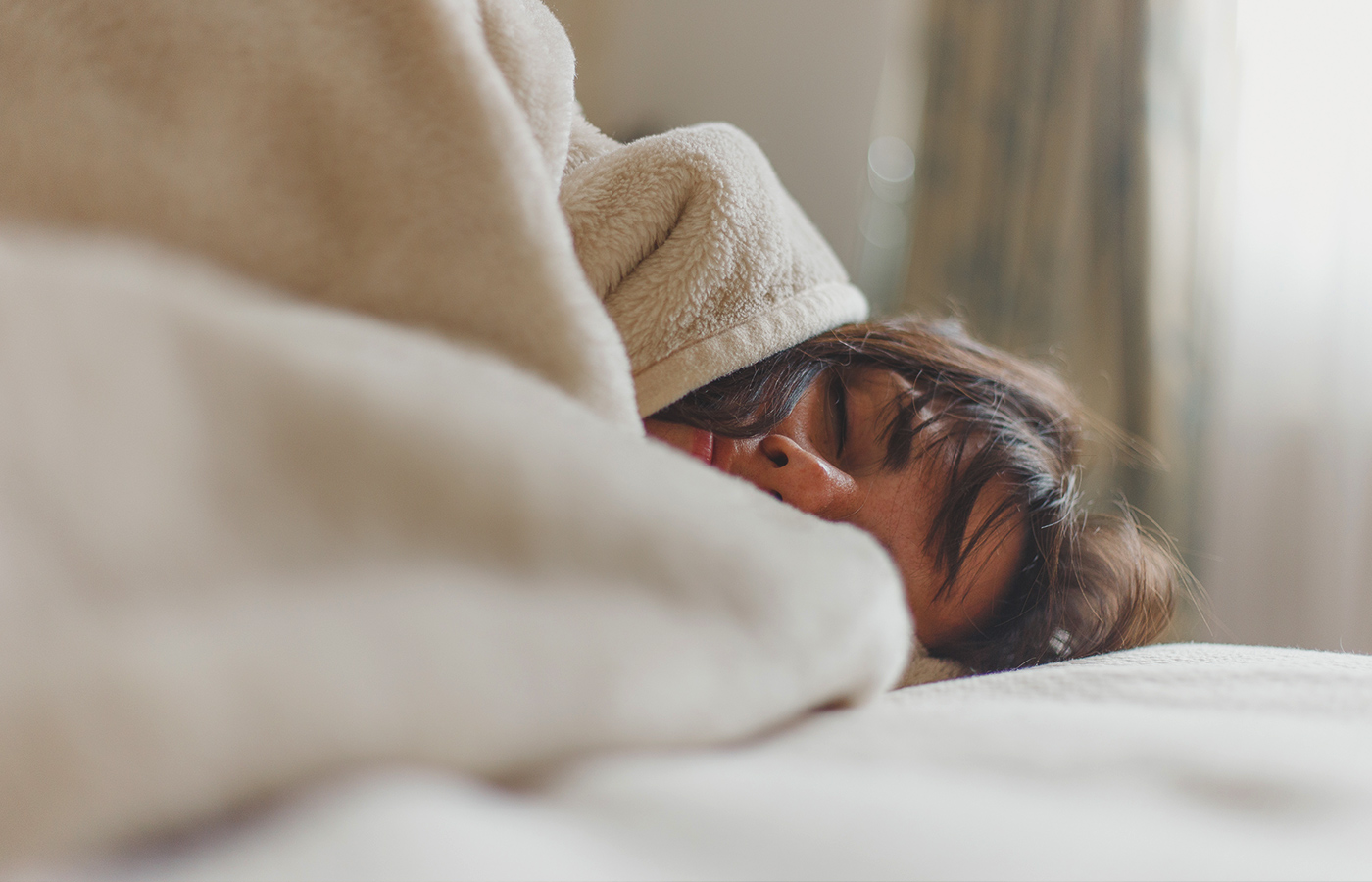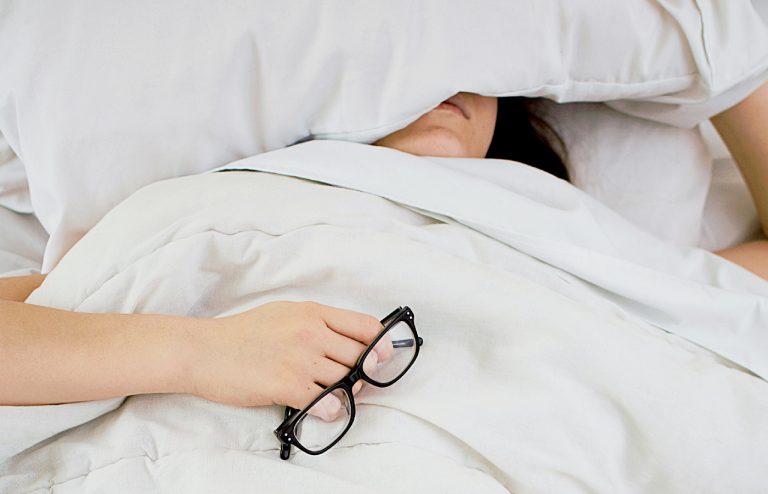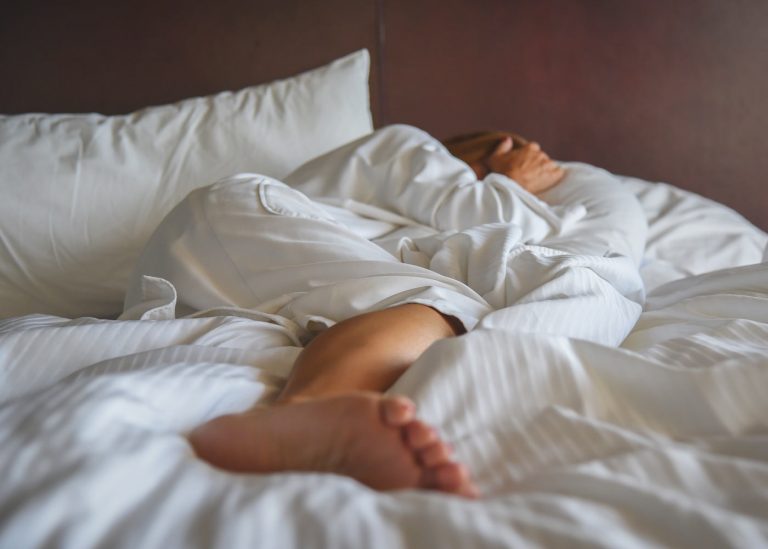Last updated on November 24th, 2021
As you race around across the morning sipping coffee, you’re usually not thinking about how you’re going to sleep that night. You might be thanking coffee for taking the edge off your fatigue from the poor night’s sleep you just had! Yet coffee itself might be the culprit for all that tossing and turning.
Coffee—or more specifically caffeine—is directly absorbed into your body by travelling from your gastrointestinal tract across into your blood. It can also cross the blood-brain barrier where it binds to adenosine receptors, the downstream effects of which is to signal to the adrenal glands to release adrenaline. This stress hormone is designed to prepare your body to get out of danger and it does its job incredibly well.
Adrenaline drives a host of biochemical changes to allow you to escape from danger. It puts you on red alert on the inside, making your heart and thoughts race, and gives you a jittery feeling that can make it difficult to feel calm and centred, despite your best efforts. It elevates your blood pressure and diverts blood away from your digestive system to your to your arms and legs, compromising digestion—because if you’re in danger you need a powerful blood supply in your periphery to help you get away quickly. Since you’re not actually in danger, all of these biochemical changes may make you momentarily more productive and focused (or they may tip you into a very uncomfortable place emotionally, driving anxious thoughts and feelings, without you considering caffeine as a driver for this), which may be great to help you get through your full day, yet come night, the adrenaline that’s still running through your body can take a toll on your sleep.
For many people, caffeine isn’t the only trigger for adrenaline in their day—and this is usually at the heart of the problem. Any time you feel stressed, pressured or overwhelmed, you’re sending a message to your body to produce stress hormones. Most often this comes from how you think and your perception of pressure and urgency. Usually, it’s an accumulation of instances throughout your day signalling the production of stress hormones that becomes problematic for sleep, not just one cup of coffee in the morning. Although for some people one tiny cup is enough to set off a chain reaction that significantly impacts sleep. And if you’re having more than one cup and not sleeping well—or drinking coffee later in the day? It’s highly likely to be a key contributing factor.
So what is it about adrenaline and sleep? Well, if adrenaline is the hormone that’s produced when your body is in danger, you’ll start to get the idea. If you are truly at risk, your body doesn’t want you to fall into a deep, restful sleep because if you do, you may not be able to rouse yourself quickly enough to get yourself to safety.
And so you’ll toss and turn, drift off then wake up again and then drift off into a restless sleep that isn’t all that restorative. Or perhaps you’ll lie there for hours—either at the beginning of the night or somewhere in the middle—unable to sleep thanks to a mind that won’t stop racing. Frustratingly for you, your body doesn’t know the difference between the adrenaline produced as a result of actual danger and perceived danger. If you decide to take a swim in crocodile-infested waters and see two beady eyes coming your way, you’ll want adrenaline to give you the boost you need to swim as quickly as you can away from this very real danger. Yet if you read a text from your boss asking you to come into a meeting tomorrow and you instantly get worried about what it could entail (i.e. you perceive danger), adrenaline will be coursing through your blood with nothing to do but make you feel wired.
The bottom line is, if you’re having trouble sleeping, you want to avoid producing adrenaline as often as you can throughout your day. So you may like to reduce your intake of caffeine or take a break from it entirely. You will also benefit from exploring your perceptions of pressure and urgency. Are you unnecessarily adding urgency to things that aren’t urgent? Are you putting unrealistic amounts of pressure on yourself to get more done in a day than is actually possible? Reflect on how you are adding to your body’s perception of danger with your thoughts and beliefs.
Want to know more about how you can improve your sleep? You may like this article on supportive sleep hygiene habits.









